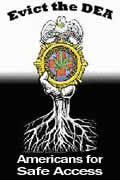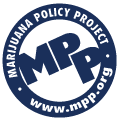|
We Update Daily!
 Custom Search Custom Search
Chris S. Kenoyer. Owner
MMJ Patient, Medical Activist,
Online Patients Advocate,
Online MMJ News Journalist
My Medical Bio
Follow Us Now On Twitter
@MedicalMMJMan
Or Follow Us Now
On Facebook
Email Us Here
olpwebs@yahoo.com
Or Email Us Securely Here
MedicalMMJMan@countermail.com
NEW 100% Encrypted Email Server
OLP’s Free MMJ News EList
Get The Latest In MMJ News
Press Contact Info
Is CBD? A Possible Cure For
Breast Cancer..? And All The Other
Many Forms & Types Of Cancer..?
Learn More About CBD Here
***************************
Advertise Here On OnlinePot
Rates As Low As $50 a Year
24/7 – 365 Days A Year Of Sales!
***********************************
Website Navigational Links
Main Start Page 2
**************************
Latest Marijuana News Reports
*********************************
Parody’s Cartoons US
Government Grown Pot,
Term Papers, School
Reports, & Thesis’s On
Marijuana & Cannabis
*********************************
Amsterdam A to Z
********************************
Canadian Marijuana Websites
*******************************
Church’s & Pot Cannabis
*****************************
Co-Ops, Clinics, Dispensary’s
*****************************
Marijuana Doctors & Clinics
****************************
Pot Cooking Recipes
****************************
Drug Testing A To Z
***************************
Pot Games
****************************
Pot Songs Video’s
****************************
100’s Of Grow Guides
***************************
Hash A- Z
***************************
Cannabis Legal Info, Drug
Lawyers, State, Federal Laws,
State & Supreme Court Rulings
**********************
POW’s Of The MMJ War!
*****************************
Other Marijuana Websites
Reciprocal Link Exchange
****************************
Medical Marijuana Studies,
Research Report’s, Medical
Cannabis Clinic Study’s
****************************
Parody’s & Cartoons
When We All Need A Good Laugh!
****************************
Avoiding Online MOM Scammers
Newly Re-Updated Info!
*****************************
The Politics Of Contraband
Medical Marijuana In The Mail?
******************************
The Hall Of Shame Section
The Online MOM Scammers
*****************************
Online MOM Providers Ads
****************************
Politicians & Voters Rights
****************************
Medical Marijuana, Strains
****************************
The OG Marijuana Strain Guide
****************************
800+ FAQ Growing Questions
****************************
Patients Spiritual Guidance,
Free Online Crisis Help Center
****************************
Online Marijuana Seed Banks
****************************
Maximum Security Section
Just Updated!
*****************************
Traveling Tips, Guides, B & B’s
****************************
Vaporizers A To Z
*****************************
Online Pot Video’s & Movies
**********************************************
Please Visit Both Of Our Sister Websites!
Maine Patients Coalition.org
The Reefer Madness Teaching Museum.org
Listen Right Here Online!
To Original 1930-1950’s
Reefer Madness Propaganda
Radio Shows And Programs
Before TV There Were
"Radio Stars"



*********************************
Legal Disclaimer
Guest Book
Translate Text or Web Page Go To:
Language Tools Google Translations
Article Submissions & News
Reports Are Always Gladly
Accepted Here.

No part of this site maybe used or
reproduced in whole or in part
without the written consent of the
Copyright Owner
www.onlinepot.org
OLP ENTERPRISES L3C
1999-2014 Copyright
© All rights reserved
OnlinePot assumes no legal liability for any products, or information or
news posted, services offered, Or
any contests or give away’s offered.
|
|
Cash and Money Laundering – A Primer
This page should be no way be construed in ANY WAY as
legal advice We are NOT Lawyers. If you need legal advice,
Please seek out a lawyer for any legal advice that you need.
This was "written by anonymous" And Was Submitted Here To Us
Computer Security, Keeping Your Money Safe, Offshore banking & Other Good Stuff To Know
Return To OnlinePot’s Legal Section Main Page
Return Back To The Maximum Security Section Main Start Page
And Check Out The Rest Of Our Security Data To Keep You Safe!
In light of a recent post “banks/cash and the taxman”, I’ve decided to write-up some basic info on money laundering. I chose not to write it in a FAQ format because everything is inter-related. You have to read the whole document to understand the big picture.
This is specific to Canada although it applies to the US in almost exactly the same way. Most EU countries employ similar legislation. Tax havens have also caved-in to international pressure and most of them now employ anti-money laundering legislation. Just a little disclaimer… I am not an expert, yet. I’m a finance student who has done a lot of extra-curricular research 😛 A lot of research has been done through the internet, but I’ve also spoken to a friend of mine (who works for a bank) about internal bank policy regarding suspicious transactions.
Ok, so you’ve sold a bunch of weed. What do you do with the money? Well, a lot depends on your particular situation and how much “a bunch” is. The really big growers probably already have a means of laundering the money since I would assume most of them are hooked up with the kinds of people who do this on a regular basis. This info pertains more to the small-medium sized guy, than to the guy who needs to move millions of dollars.
So you’ve got this money… My first recommendation is that you don’t do anything with it. Obviously, do not put it in the bank if you don’t have to. Make small deposits to cover your rent, car payments or insurance or other bills only as much as you absolutely need to. Pay for as much as you can in cash. This much is obvious. Use the income from your real job to pay (assuming you have one) for all the things you can’t hide. If ever you’re investigated or audited, you do not want to appear to be living beyond your means. If they can prove that you are, they can take what you have. Whether they will or not, and the exact laws pertaining to this sort of thing is beyond the scope of what I want to cover here. Not to mention I’m not a lawyer and that’s not my area anyway.. Needless to say, some countries and prosecutors are more zealous about this than others… Personally, I’d rather not have it come to that.
The hard part, is how do you buy big ticket items safely? It’s great to have thousands of dollars to spend, but how do you spend it? Unfortunately, this has become a lot harder for most regular folks to do in recent years. The irony is that organized crime still gets away with laundering much larger amounts since they have access to an infrastructure of legitimate businesses that have been built-up over many years. They usually own lots of restaurants and bars and other cash businesses than they can funnel the proceeds of their crime through.
My recommendation would be that you hold-off on any big purchases until after you’ve shut-down the grow permanently. The reason being, if you get caught and you’ve already spent a large portion of your earnings on expensive toys and other things, they can be seized and it’s all been for nothing. This much should be common sense, but most people need the immediate gratification that comes with buying something new (and often expensive, when we’re talking drug money). I’ve seen it with criminals I know. They make tons of money jacking trucks/selling drugs/whatever, they blow half of it on coke and whores, spend some on a flashy car and if there’s any left they spend it just as irresponsibly. When they get busted, their car and whatever else they bought is taken, and unfortunately for them, the whores were only partying with them cause of the money they were throwing around and they won’t do conjugal visits in jail 😛 Do not spend money you can not account for while you’re still in business unless you don’t mind losing it if/when you get busted.
If you’re disciplined enough to set a goal and stop when you reach that amount, your chances of spending the money w/o your stuff getting seized at some point have just increased significantly. You’ll understand the rest as you read along.
The root of all our problems: Suspicious transaction reports
Back in 1989, at the Paris G-7 Summit, the Financial Action Task Force on Money Laundering (FATF) was established. Their mission was to develop a set of recommendations to counter money laundering that member countries would then implement. They also monitor non-member nations. Any country that does not implement or show progress towards doing so is put on to a non-compliance list. The international community then pressures these countries into compliance. All of the major off-shore tax havens that used to be safe for laundering money now comply with the 40 recommendations put forth by the FATF. Each country has its own agency that monitors suspicious transactions. Many of these countries also share their information when asked. Some are more cooperative than others. Many of the tax havens require proof of a predicate offense before they let foreign governments snoop around in the financial affairs of those who hold accounts in their countries. Many of these tax havens do not recognize tax evasion as a crime. Drug money on the other hand, is fair game just about anywhere in the world.
The result of all of this in Canada is a little piece of legislation called “The Proceeds of Crime (Money Laundering) and Terrorist Financing Act” which was put in to effect in 2000. There was legislation in place before 2000, but that is the new version.
The main thing that we have to concern ourselves with is the suspicious transaction report. It varies from country to country, but for Canadians (and Americans), when you deposit, withdraw, transfer, or do anything else in an amount of $10000 or more, a report is automatically filled out and sent to the Financial Transactions and Reports Analysis Centre (FINTRAC). If you deposit cash in an amount of greater than $3000, it is recorded. The same goes for an accumulation of transactions within a 24hr period. If they add up to 10k or 3k, they get reported.
I’m not sure what happens to the information there, but I would assume that all of the information is analyzed by computers for patterns that are out of the ordinary and that if anything seems out of place, flags appear and a human takes a closer look. I’m also pretty sure that nothing much usually happens as a result of a transaction being recorded and sent to FINTRAC, but personally I’d rather keep my transactions out of their dirty little Orwellian database 
Most money laundering cases start with the person suspected of a crime or someone who’s been apprehended for a crime, as opposed to the transactions that accumulate in the national database. Money laundering is a crime of intent, in that two people could perform the exact same set of transactions and one person would be laundering money and the other wasn’t. So obviously it makes more sense to start with someone whom you know is involved in something illegal (in our case drugs) than it does to pore over huge numbers of transactions that have been automatically reported for no other reason than their size.
Note that most anti-money laundering efforts have met very little success. I wish I could remember the statistics, but the Americans spend hundreds of millions (probably more) on an annual basis, yet the % of successful prosecutions remains extremely small. Here’s an excerpt from something I read:
| The international narcotic trade launders a minimum of $200 billion a year. Law enforcement efforts in the best of years recovers amounts in the range of $100 million to $500 million. In most cases, law enforcement investigations start with an identified crime and follow the money trail. |
Do the math. That’s .25%, in their BEST year. Think of the trillions of transactions which are conducted each day. It is for this reason that I believe FINTRAC operates mainly in an administrative (recording) and advisory role to law enforcement. If LE initiates an investigation in to your finances for whatever reason, FINTRAC is there with all of the records and the expertise to try and figure out what’s going on. But short of this, I think the odds are in your favor. This is only hypothesis on my part, but even a government has finite resources.
| While Canada has seized record amounts of currency in recent years, actual forfeitures are negligible by comparison (to the US) because Canadian law requires proof of a direct link between seized property or currency and specific drug transactions. |
This is a very good thing for Canadians and I don’t think Americans are as fortunate. However this isn’t to say that if you have property or expensive toys which you can’t account for (i.e. you’re living demonstrably beyond your means), that they can’t take them. Note: I’m not sure about the law in this area, any lawyers feel free to chip-in and explain it.
This is why I keep saying not to spend the money until you’ve shut down the grow op. After you’ve done so, the chances of them being able to link your money to drugs dwindle to almost nothing in most cases.
So what if you need to deposit some money in the bank and you’re not ready to shut down your grow op?
The short answer is to keep the amounts small. Keep cash deposits under 3k, and by that I don’t mean $2999. Deposit the money to ATMs. For all the bank knows, maybe it’s the money from your piggy bank. It doesn’t really matter and most bank employees will not care. Although FINTRAC has published a lengthy set of guidelines for people to follow, the reality is that most bank tellers probably haven’t even read them. I have a friend who works as a teller and she said that the only time she files a report is when it pops-up on her screen automatically because we’re talking about amounts over 10k. Here is a link to the FINTRAC guidelines if anyone wants to read them. I highly recommend it.
The best strategy for the regular guy who doesn’t own a bar, restaurant or other cash business to launder his money, is to make deposits in to several accounts with DIFFERENT banks. Do not under any circumstances open several accounts at the same bank for the purposes of laundering money. When the bank employee takes your deposit, she can see the accounts held at other branches. If someone notices that you’re depositing 2.5k into accounts at 3-4 different branches in the same day, it could possibly set off the alarms. I would also think that there exists a chance that bank software checks for such things. This means that if you go to several branches of a bank and deposit amounts just under the reporting limit, the software might alert someone. If this type of software did exist, using an ATM to make your deposits wouldn’t make any difference in this regard. On the same note, I would avoid deviating too far from previous patterns in your account/transaction history. Believe me, this type of software would not be hard to code and they already have their software set up to detect the 10k reporting threshold (the report is done automatically). It would seem probable to me that these sorts of counter-measures are already in place. This is why you should use as many different banks as possible. Open new accounts with new banks, and deposit the money in a place where you don’t have a transaction history. This way you won’t ever be deviating from previously established patterns. By the way, once the deposit is made, it’s just a number. It doesn’t say whether it was cash, cheque, money order, etc.
I would avoid making your cash deposits to your regular account or making the deposits in person, especially if they are to be performed with a(òüÕrequency. You don’t want some do-gooder teller remembering that you deposit 2.5k in cash week after week, because there exists the possibility that he/she will eventually catch on and report you to FINTRAC, the authorities, or both.
Our main objective so far has been getting the money in to the banking system without drawing attention to it. You can now spend the money a bit at a time and chances are nobody will notice. Unfortunately, you still can’t buy a house or really expensive car with it, especially if you intend stay in Canada or the US. The fact is, you still can’t show how you got the money if you ever come under scrutiny. You still need to get it out of the country and then hide its origin and then make it look like a legitimate source of income. People may still have their doubts, but as long as they can’t prove anything, that’s all that matters.
If we are talking about significant amounts of cash, it might not be a bad idea to incorporate a company (there are many ways you can do this, I’d recommend talking to a corporate lawyer) so that this cash, with no verifiable origin, isn’t running through accounts in your name. If you really want to obscure the origin of the money, you’re gonna have to go see some lawyers in any one of the numerous off-shore centers of the world. They can tell you about IBCs (international business corporations) and trusts and a number of other ways to distance yourself from the money. If you were depositing money to an account held by a Panamanian IBC for example, it would be very hard to prove that òŸk9were the beneficiary (it’s protected by banking secrecy laws in most tax havens). Theoretically this company or a subsidiary of it could buy you a car and a home. Note that you would still have to be careful in how you approach the situation so as not to set off alarms with the real estate broker; yes they have to report suspicious transactions to the government as well… There are lots of ways to get creative here. The key point is NOT TO TELL anybody about your offshore interests or anything at all about your finances.
Oh and as a side note.. Canadian and American accountants can not be trusted with this sort of information. THEY WILL FUCK YOU. There is no client privilege with accountants. They are under instruction from the government to report suspicious transactions and activity. Accountants are an anal, self-righteous bunch. Don’t trust them. The only reason I would keep an accountant in Canada would be to do my taxes on my declared income. Even then, I’d rather do my own. The less he knows the better.
Another note: and our Gestapo governments are also trying to find ways of getting around attorney-client privilege so that lawyers can’t help their clients with sort of thing behind the shield of attorney-client privilege. If these laws are ever passed, they would be obliged to report suspicious financial activity, just as accountants are. This isn’t law yet, and hopefully it never will be, but once I’m up and running, I’ll be dealing exclusively with professionals in foreign countries.
Let me briefly explain the reasons for using tax havens such as panama. Because of their secrecy laws, and the fact that the beneficiaries of entities such as IBCs and trusts can be hidden from public record, it is nearly impossible for another government to tie you to the money or prove that the origins weren’t legitimate. Unless the investigating government can PROVE a predicate offense, these tax havens will not share information about you. This is why it’s best to set a goal, reach it, and then STOP all illegal activity before the government nails you on something they can use as a predicate. You can then take a trip to panama or wherever, meet some lawyers, and figure out how you’re gonna set yourself up to deposit that money in to accounts belonging to some company you don’t own. You need to actually go down there and meet people. There are many scams involving offshore banking and legal services. Go down there, ask around about reputations and schedule a consultation.
If you continue living in Canada or the US, you can structure your offshore interests to provide you with an income that you can spend in your country of residence. An accounting professor once told me “that the best way to launder money was to pay taxes on it.” This is very true. Greed continues to be at the top of the list of why people get caught for a wide variety of crimes.
I’m sure I’m forgetting stuff, but this is enough typing for tonight. This should be more than enough to get you started. I’ll say it again, keep your mouth shut about your finances (don’t tell anyone at all) and read the FINTRAC document I linked to above. Use the ATM and don’t let the FINTRAC document make you too paranoid. Most bank employees just don’t care enough. My friend said that nobody ever reported anything except for the reports that are triggered automatically by $10k+ transactions. And if you’re dealing with lots of dollars, take a trip to a tax haven and consult with some lawyers there. The fees to setup the corporate structure would probably cost you anywhere from 2-5k US, depending on what you go with. Once you get this sort of thing up and running, keep individual transactions under the 10k mark and try not to make the payments for always the same amounts. Change things up. Sometimes do small transfers, not always big ones just under the limit. Patterns are your enemy. Make the deposits to different companies at different times and for different amounts. Don’t be impetuous because you want to spend your money ASAP, it will only lead to trouble. Oh and don’t keep the minutes of the company or anything else that directly associates you with it in your house.
Hope this helps.
Again, I wanna stress that I wasn’t offering legal advice. I’ve done a lot of research on the subject and talked to various people and I figured I’d share.
I didn’t mean any offense to the accountants out there reading this forum 😛 But you have to admit, there are a lot of do-gooder anal accountants in the world. Some of them would probably feel compelled to rat you out if they thought you were doing something illegal like laundering drug money. Correct me if I’m wrong, but doesn’t the IRS pay a 10% cut for information that helps them nail someone that’s evading taxes? And taxes are one thing, laundering money from the proceeds of growing weed is another 😛 I think i’d rather be safe than sorry.
Like I said before, if you were ever to come under scrutiny and someone took a good look at your finances and saw several bank accounts with tons of transactions just under the reporting limits, you’d probably run in to some trouble. With small amounts only once in a while I wouldn’t worry too much about it. But if we’re talking relatively large sums, I would think hard about setting up a business to run the transactions through. Don’t just incorporate an american/canadian company though, cause that provides no protection unless it really is completely legit and can stand up to scrutiny like sick little monkey explains. Even then, why not do this within the structure of an offshore corp? They can do business in the US/can just like any other business. Again, your just can’t tell anyone that it’s YOUR business or you completely defeat the purpose of the whole exercise.
You’re going to want to talk to someone about IBCs, etc. If you go down to Panama or wherever, you can arrange it so that your name is listed nowhere on a public document. Your lawyers can arrange to have other people listed as the president of the company, etc. Shareholders are private info. The US/can gov can try to get that info, but unless they can prove a predicate offense (and tax evasion doesn’t count), they’re not going to get it. There are many more benefits that I’m not even going in to.
Since my first post was kind a long, I’m going to stress again why actually going down there is a good idea. There are many scams related to the offshore world. Unless you go down and meet someone face to face in their offices, there’s really no way of knowing who you’re dealing with. These guys are very cunning and you have to be careful. There’s no substitute for going down there and meeting people.
And lastly, in response
| that’s all well and good if you want to leave the country, but what if you don’t want to leave and as a small-medium fish you just want to hide the cash for the future. what about having a company made and having them send u cheques to be your personal salary? you could get them printed as a real pay cheque |
You’re right, you could. And depending on your profession, you could probably make it look very legit as well. Especially if you provide some kind of service. "Why Mr. IRS man, I earned this money by designing web pages and I paid my taxes on them. What’s the problem?" I’m getting creative here, but you could probably say you were contracted by the company and were under NDA as to what you did for it. Don’t know how well it would hold up but it’s just something off the top of my head 😛 If you’re doing this with IBCs and using different jurisdictions to your advantage, I would think it’d be VERY difficult for anyone to prove anything. Pay your taxes, don’t do anything that draws too much attention to yourself, and chances are you can enjoy spending as much as you want 😛 Personally I’d only pay myself what I wanted to spend. I’d leave the rest offshore in a company other than the one I originally put the money through (where you can invest it w/o paying any extra tax on it). If you incorp. 2 companies, you could have them do business together and the one that pays your cheque could stay completely clean. Even if the other came under investigation. Very little would result. There are a million ways to do it. Successful prosecutions are extremely rare. I wish I could find the numbers again. You’d cry if you knew how much our governments spent LOSING money laundering cases.
Again my post was just intended as a primer to help get people on the right track.
Nothing I say is a substitute for professional advice. Excuse the English and sentence
structure tonight. I’ve been up for a long time =/
Return Back To The Maximum Security Section Main Start Page
And Check Out The Rest Of Our Security Data To Keep You Safe!
|



 Button Ads!
Button Ads! 




